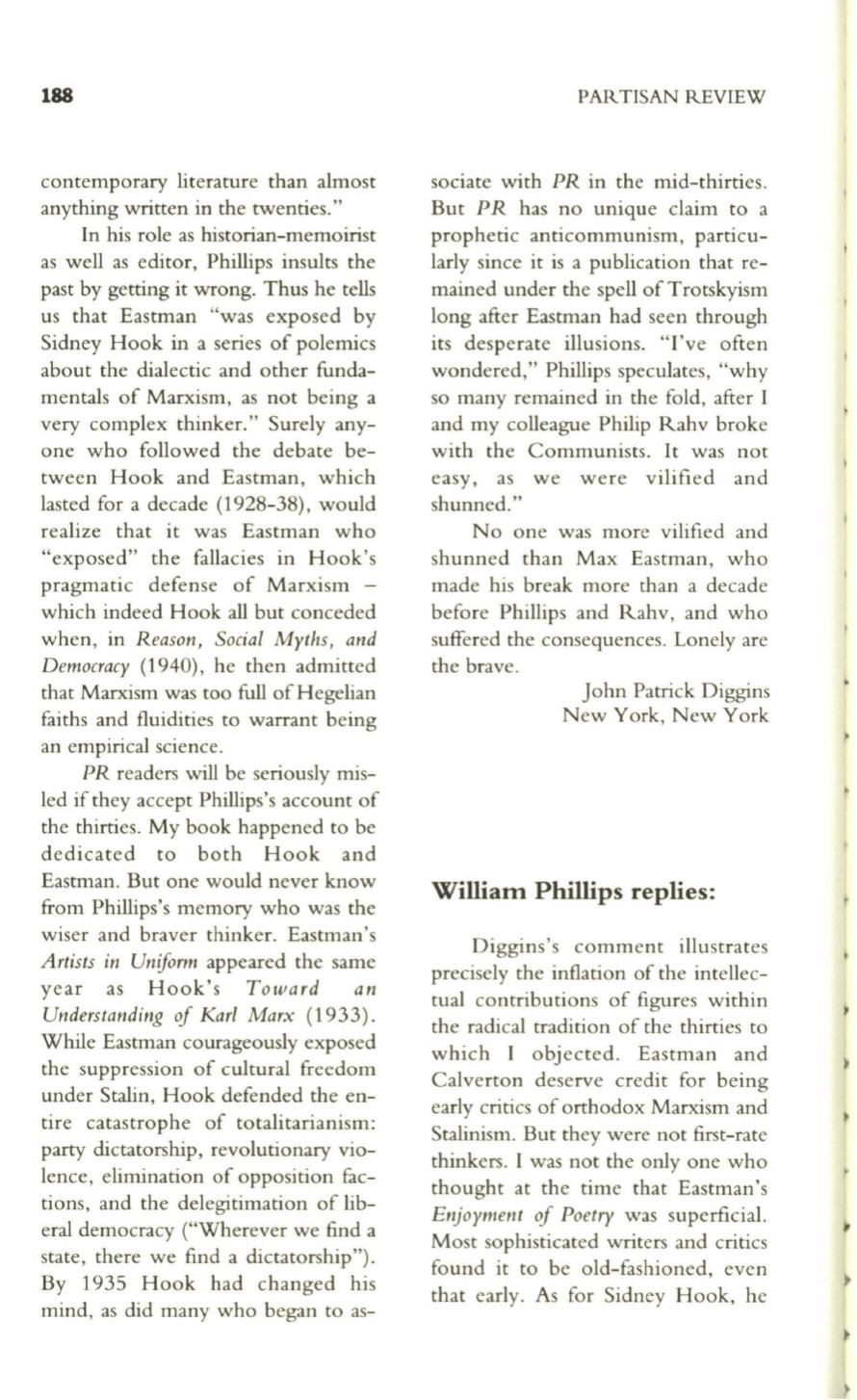
188
contemporary literature than almost
anything written in the twenties."
In his role as historian-memoirist
as well as editor, Phillips insults the
past by getting it wrong. Thus he tells
us that Eastman "was exposed by
Sidney Hook in a series of polemics
about the dialectic and other funda–
mentals of Marxism, as not being a
very complex thinker." Surely any–
one who followed the debate be–
tween Hook and Eastman, which
lasted for a decade (1928-38), would
realize that it was Eastman who
"exposed" the fallacies in Hook's
pragmatic defense of Marxism -
which indeed Hook
all
but conceded
when, in
Reason, Social Myths, and
Democracy
(1940), he then admitted
that Marxism was too full of Hegelian
faiths and fluidities to warrant being
an empirical science.
PR
readers will be seriously mis–
led if they accept Phillips's account of
the thirties. My book happened to be
dedicated to both Hook and
Eastman. But one would never know
from Phillips's memory who was the
wiser and braver thinker. Eastman's
Artists in Uniform
appeared the same
year as Hook's
Toward
an
Understanding of Karl Marx
(1933).
While Eastman courageously exposed
the suppression of cultural freedom
under Stalin, Hook defended the en–
tire catastrophe of totalitarianism:
party dictatorship, revolutionary vio–
lence, elimination of opposition fac–
tions, and the delegitimation of lib–
eral democracy ("Wherever we find a
state, there we find a dictatorship").
By 1935 Hook had changed his
mind, as did many who began to as-
PARTISAN REVIEW
sociate with
PR
in the mid-thirties.
But
PR
has no unique claim to a
prophetic anticommunism, particu–
larly since it is a publication that re–
mained under the spell of Trotskyism
long after Eastman had seen through
its desperate illusions. "I've often
wondered," Phillips speculates, "why
so many remained in the fold, after I
and my colleague Philip Rahv broke
with the Communists. It was not
easy, as we were vilified and
shunned."
No one was more vilified and
shunned than Max Eastman, who
made his break more than a decade
before Phillips and Rahv, and who
suffered the consequences. Lonely are
the brave.
John Patrick Diggins
New York, New York
William Phillips replies:
Diggins's comment illustrates
precisely the inflation of the intellec–
tual contributions of figures within
the radical tradition of the thirties to
which I objected. Eastman and
Calverton deserve credit for being
early critics of orthodox Marxism and
Stalinism. But they were not first-rate
thinkers. I was not the only one who
thought at the time that Eastman's
Enjoyment of Poetry
was superficial.
Most sophisticated writers and critics
found it to be old-fashioned, even
that early. As for Sidney Hook, he


